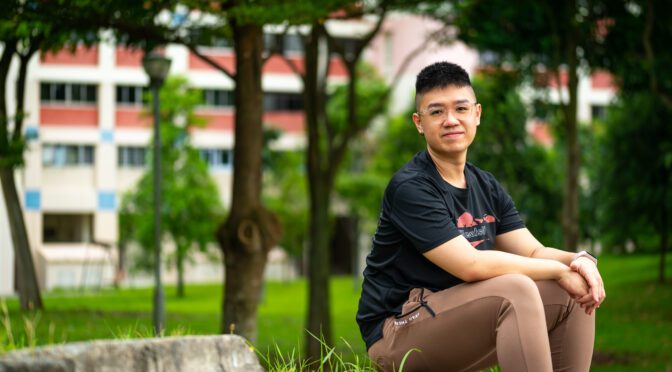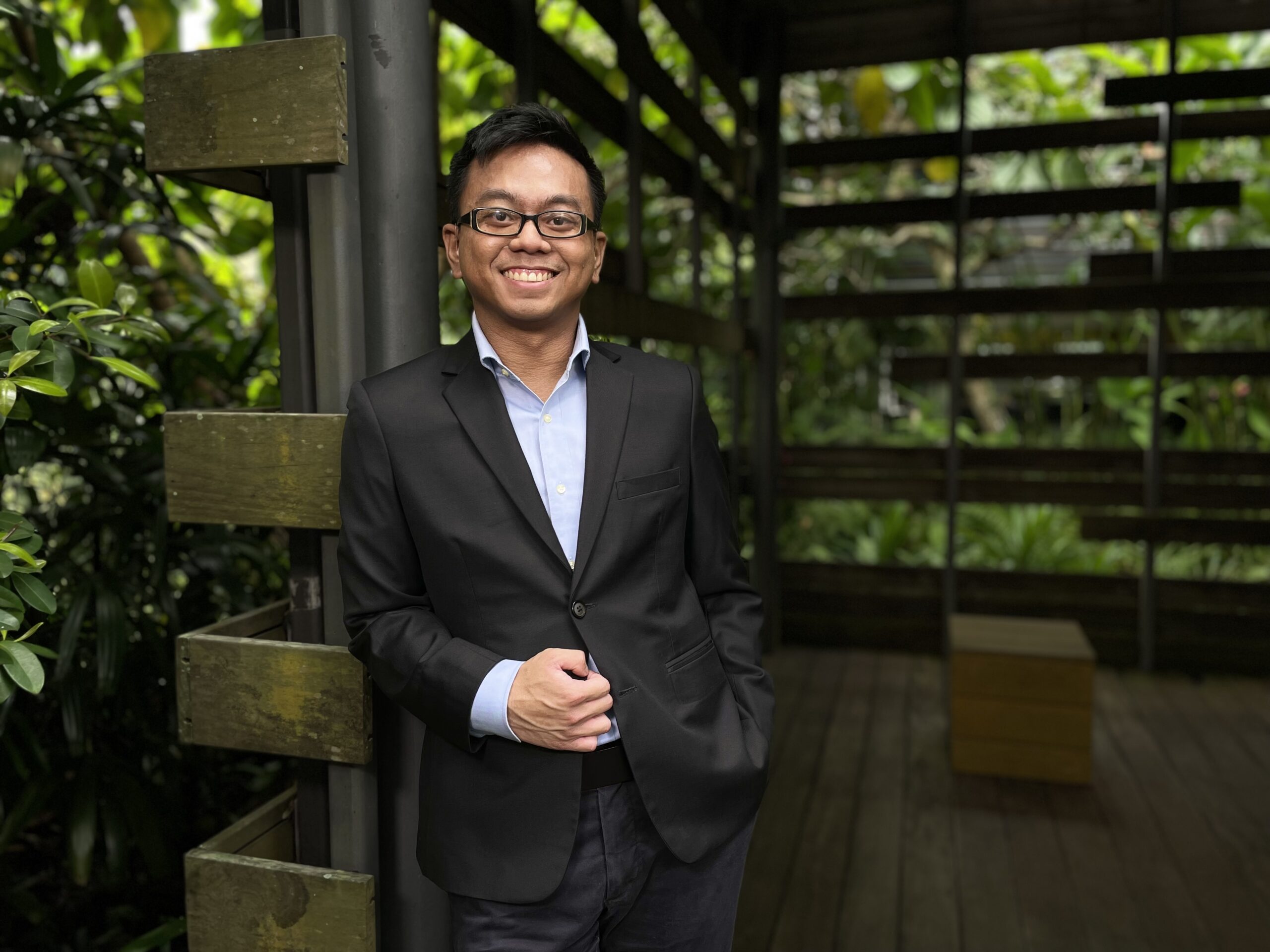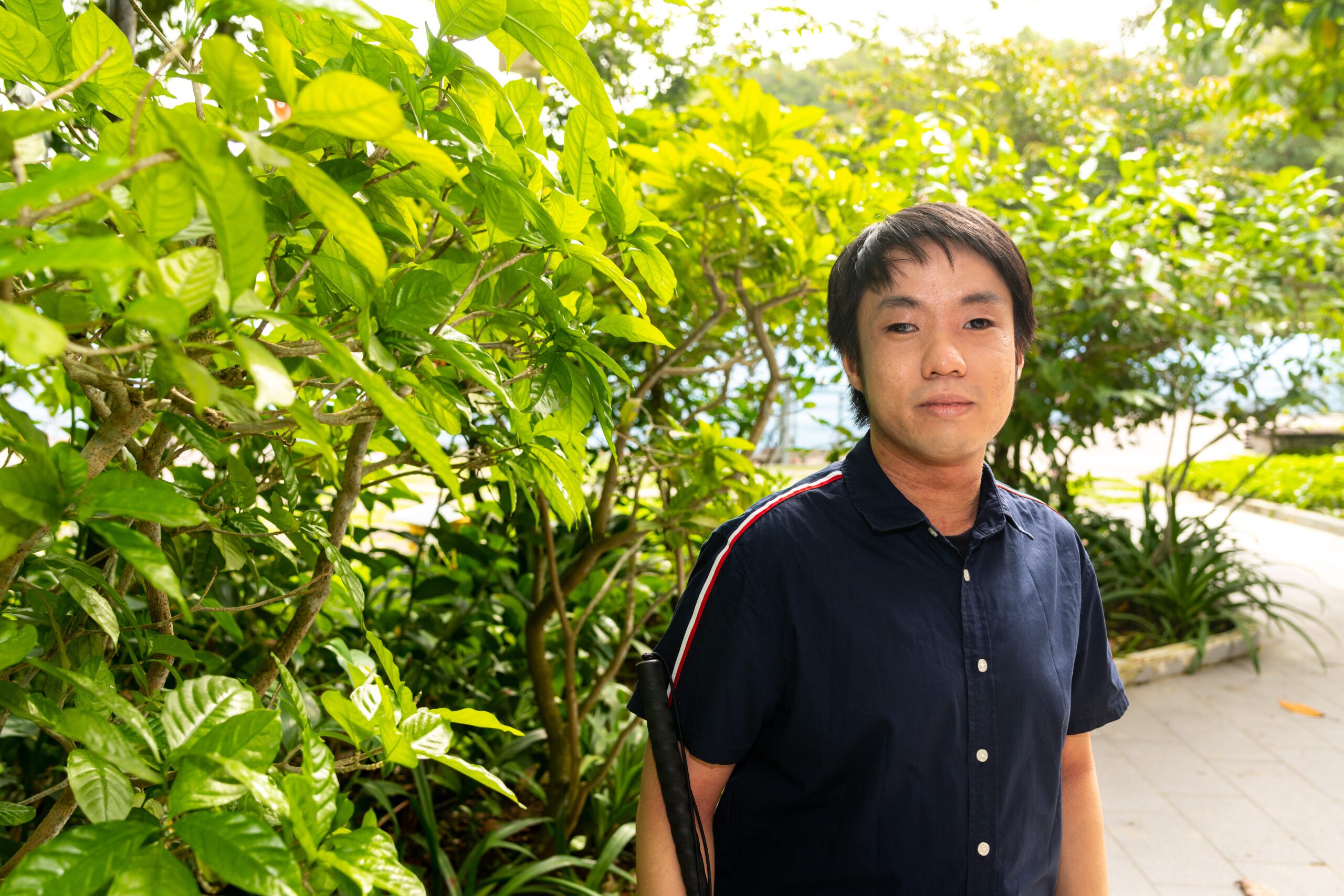The first steps to becoming an advocate
A few months after I got my diagnosis, I chanced upon an advertisement on a campaign called ‘Paint the Town Red’. It was a final-year project by a group of university students, who wanted to spread awareness about HIV. Though the wound was still fresh and I had yet fully processed my condition, I felt this pull that I had to reach out and share my story. This was well ahead of the timeline I had given myself to become an advocate. We met up at a secluded area in my school, and a reporter from a national newspaper was in tow as well. That marked the first time I declared out loud my HIV-positive status to anyone other than my doctor. I cried while sharing my story, and they cried. But it was catharsis: a weight was lifted off my chest, and I had clarity. Following that, I went on to speak at many more closed-door events. I even invited my doctors to one of them. One time, I spoke in front of an audience of eighty people, and by the end of my speech the roomful of people were in tears. A stranger came up to me and said: ‘“We’ve never met before today, but I want to give you a monthly allowance so that you can pay for your medications. I wish you all the best and I hope you will excel in life.”’ Her gesture went on for about two years. These pockets of monetary support I received from her, and from other strangers along the way, were how I managed to pay for and stay on treatment. The kindness I was shown kept my advocacy efforts going.
It would take two years before I felt ready to share my diagnosis with my peers. I first revealed it to one of my co-curricular activity mates. I had braced myself for her to wince at my revelation, to withdraw her touch or recoil from me as if I were a dirty thing. But her reaction was a mix of surprise and concern. She was very concerned about my well-being. I guess for her, to see someone of a friendly disposition go through an ordeal all by himself was worrying. Shortly after, I selectively shared my diagnosis with acquaintances, choosing them over my friends: even if they reacted negatively, I wouldn’t brood over the soured friendships. At the time, I harboured no fear of their leaking my secret. Much like why I decided to come out to my friends when I was fifteen, there grew in me a need for some support, some validation that I deserved to be around, to live on this earth.
As for disclosing my diagnosis to my parents, I had it all planned out: I would only do so after my graduation. I didn’t want their reactions to derail my studies. I would have had all the time in the world, until my impending National Service Medical Checkup put a crimp in that. I went for it, and the medical officer told me I’d be exempted. Here I was in a pickle: the official exemption letter would be sent within the next six months. I wasn’t given a definitive timeframe: it could have been a week or three months later. How was I going to explain to my parents that their virile son was given a ticket of a lifetime to skip enlistment? There would be no lie convincing enough to get myself out of their probing. The only thing I could do was delay the inevitable. I knew my parents would tear open an envelope marked with the words ‘On Government Service’ in bold. I could not let that happen: I had to retrieve it before they did, and burn it so as to leave no trace behind. Every day, I snuck to the letterbox and checked for new mail.
I was living on borrowed time, and anxiety was ever on my mind. It was tormenting, until I wised up and realised that coming clean was the best option. I knew I had to use a divide-and-conquer approach to avoid bearing the brunt of both my parents’ wrath at the same time. An opportune chance finally came when my mother had to go on an overseas work trip in December of that year. With my mother far away, I finally worked up the courage to inform my father of my diagnosis. In the moment leading up to it, my resolve staggered, and taking that can of worms and chucking it away was so tempting. After beating around the bush for a while, I finally put the words to mouth: ‘Dad, I have HIV.’ I steeled myself for an incoming salvo of choice words and for him to unleash a storm of fury. I was already prepared for him to scream the words ‘get out of my house’. Never surer was I of the fact that I would be disowned. I could tell from his breathing that he was trying his hardest to rein in his anger. Quickly I launched into a whole spiel about HIV. What surprised me was how knowledgeable my father was about it. For one, he knew that with treatment, the virus could be kept in check. There was only skepticism from him that I, this wild child, had been a responsible patient. To prove myself, I hurriedly rummaged through my possessions in the cabinet and retrieved the very box of medications that I had gone to great pains to keep concealed. I showed him the pile of receipts documenting my doctor’s appointments. Finally convinced that I had a handle on my condition, before he left the room, he deadpanned: ‘I’m not going to back you up when you tell mother.’ To which I replied: ‘No! I told you first so you could help me!’
Read: Dr Siew Tuck Wah on Breaking the Poverty Cycle, Saving Singapore’s Street Dogs and Finding Buddhism


